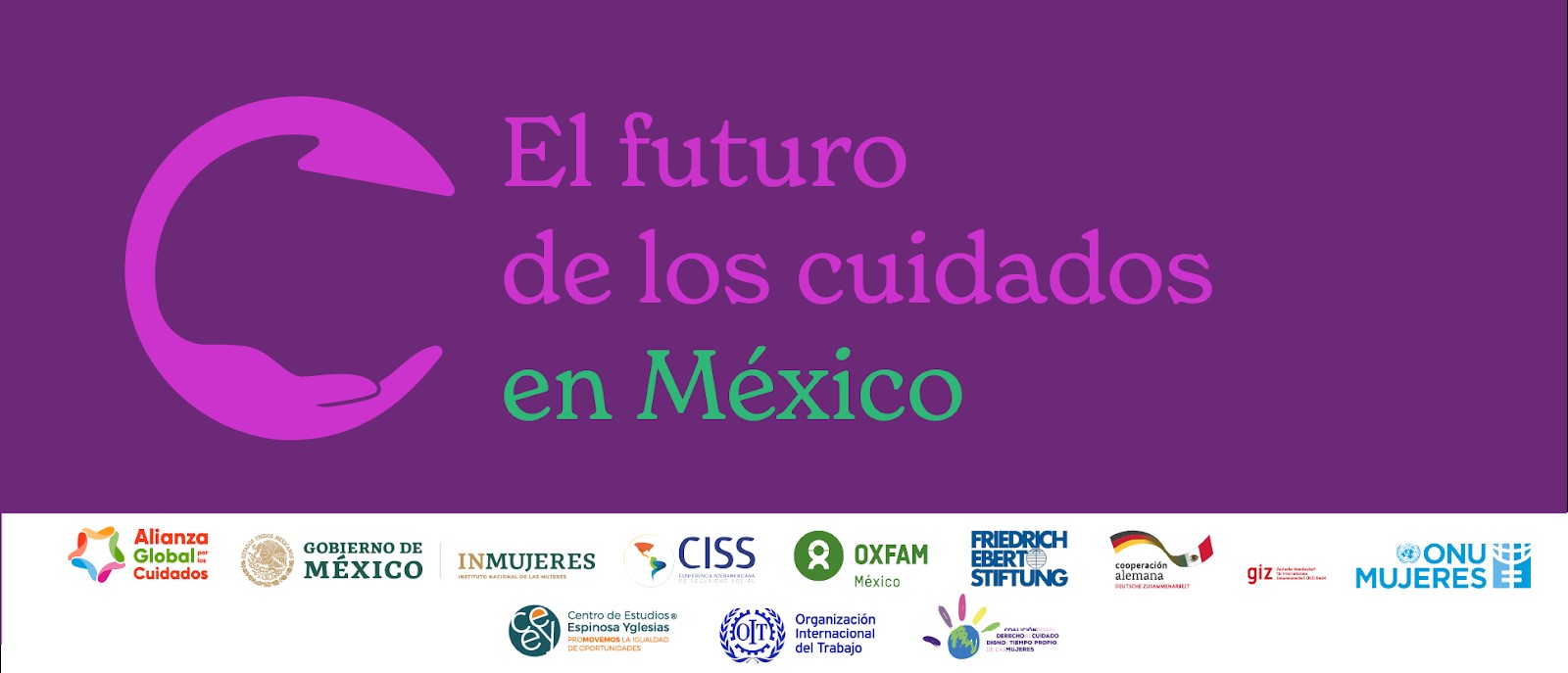By Citizen Initiative for the
Promoting the Culture of Dialogue
Held on November 19 and 20 at the Inter-American Conference on Social Security (CISS), the “Second National Meeting: The Future of Care in Mexico” discussed the progress and challenges of the care agenda in Mexico through dialogue and the exchange of experiences between decision-makers and public policy makers, as well as representatives of civil society.
The Objective:
The central purpose of the convening institutions and organizations was to bring together a diverse group of sociopolitical actors interested in promoting the care agenda in Mexico, to provide an updated overview of regulatory and public policy developments at the national and subnational levels, recognizing the opportunities, limitations and challenges with a 2024-2030 vision.
The proposal was to promote a platform for dialogue and learning on the care agenda in the country, which would provide tools to public officials from the three different branches of government and levels, activists, and representatives of civil society to strengthen care actions and policies with a transformative vision.
In addition, the goal was to promote the paradigm shift required to move towards a care society based on care actions and policies that are acceptable and sustainable, with a feminist, intercultural, intersectional and human rights perspective.
The participatory forum
During the meeting's activities, the specialists stressed the urgency of transforming Mexico into a care society through sustainable actions and policies with a feminist, intersectional, intercultural, multifactorial and human rights perspective.
In the various presentations by the speakers, it was stated that in Mexico 31.7 million people aged 15 and older provide care within the home, of which three quarters are women. They dedicate an average of 37.9 hours per week to care work, compared to 25.6 hours for men. This inequality reduces the participation rate of women in the labour market from 56.6 % to 50.3 % when they have to care for children or people with disabilities.
It was also mentioned that unpaid domestic and care work accounted for 24.7 % of GDP in 2021, according to INEGI figures, with women contributing 73 % of this value. The data show that care work falls disproportionately on women, limiting their economic autonomy and social participation, so it is urgent to change this reality, proposing a new narrative and concrete measures that promote co-responsibility and social justice.

The Decalogue of Care Policy
At the closing of the Meeting, the consortium of specialists from national and international organizations organizing the event presented the “Decalogue of the Care Policy", a document that seeks to serve as a practical guide for decision-makers to design regulations, public policies and care systems that promote a more just social organization.
DECALOGUE
SECOND NATIONAL MEETING OF THE FUTURE
ABOUT CARE IN MEXICO
Point number 1. Promote a gender and intersectional approach that allows for the recognition of the systematic and structural inequalities and discrimination that affect girls, adolescents and adult women, people with disabilities, older people, people of gender diversity, indigenous people and people of African descent. This recognition must be accompanied by specific measures to avoid reproducing the sexual addiction of care work in disadvantaged conditions and to reduce the inequalities caused by care overload, in order to promote equal opportunities and social mobility for people who provide and receive care.
Point number 2. Having a human rights perspective, through regulatory frameworks that guarantee the conditions for the effective exercise of the right to care in its triple dimension, receiving care, providing care and self-care, materializing social and gender co-responsibility, through specific inter-institutional coordination measures between the actors in the care diamond.
Point number 3. Promote interdependence and autonomy throughout the life cycle of people, understanding that we all require care and support throughout life. That we can all care, if we so choose, and at the same time, promote people's autonomy to avoid dependence on those who care for them. Although a national care policy can determine target populations and initially prioritize some, its coverage must be progressive and universal.
Point number four. Maintain the “5Rs” approach to design measures to recognize, reduce, and redistribute care work, while remunerating it and ensuring adequate representation of the needs, perspectives, and preferences of people who provide and receive care at all stages of public policy.
Point number 5. Create, articulate and diversify public care services, with the aim of strengthening alternatives in different modalities, such as home services for certain groups, such as people with disabilities or elderly people who require them. These services must maintain the principle of universality, be of quality, affordable and accessible.
Point number 6. Establish decent conditions for the provision of care, access to social security benefits and guarantee decent working conditions, both for people who provide paid care and those who do so unpaid.
Point number 7. Allocate investment through progressive financing, social spending and joint fiscal strategies, using an approach based on human rights, gender and care.
Point number 8. Develop strategies and mechanisms for active participation, consultation, socialization, and ongoing information with all sectors, especially with civil society and people who provide and receive care.
Point number 9. Generate statistical information, as well as a monitoring and evaluation system to deepen the study of the care economy and incorporate the information into economic and social development strategies for decision-making, so that the measures designed are based on evidence.
Point number 10. Recognize community and collective care, seeking the well-being of people, territories, natural resources and knowledge from the community, ensuring the cultural adequacy of care actions and policies.
Organizing consortium*
Second National Meeting: The Future of Care in Mexico
Mexico City – November 2024
* He Decalogue of the Care Policy It is a product of the following institutions and organizations: Global Alliance for Care (AGC), Espinosa Yglesias Study Center (CEEY), Coalition for the Right to Dignified Care and Women's Own Time, Inter-American Conference on Social Security (CISS), German Technical Cooperation (GIZ) in Mexico, Friedrich Ebert Foundation (FES) in Mexico, National Institute for Women (Inmujeres), UN Women, International Labor Organization (ILO), Oxfam Mexico (OMX).





